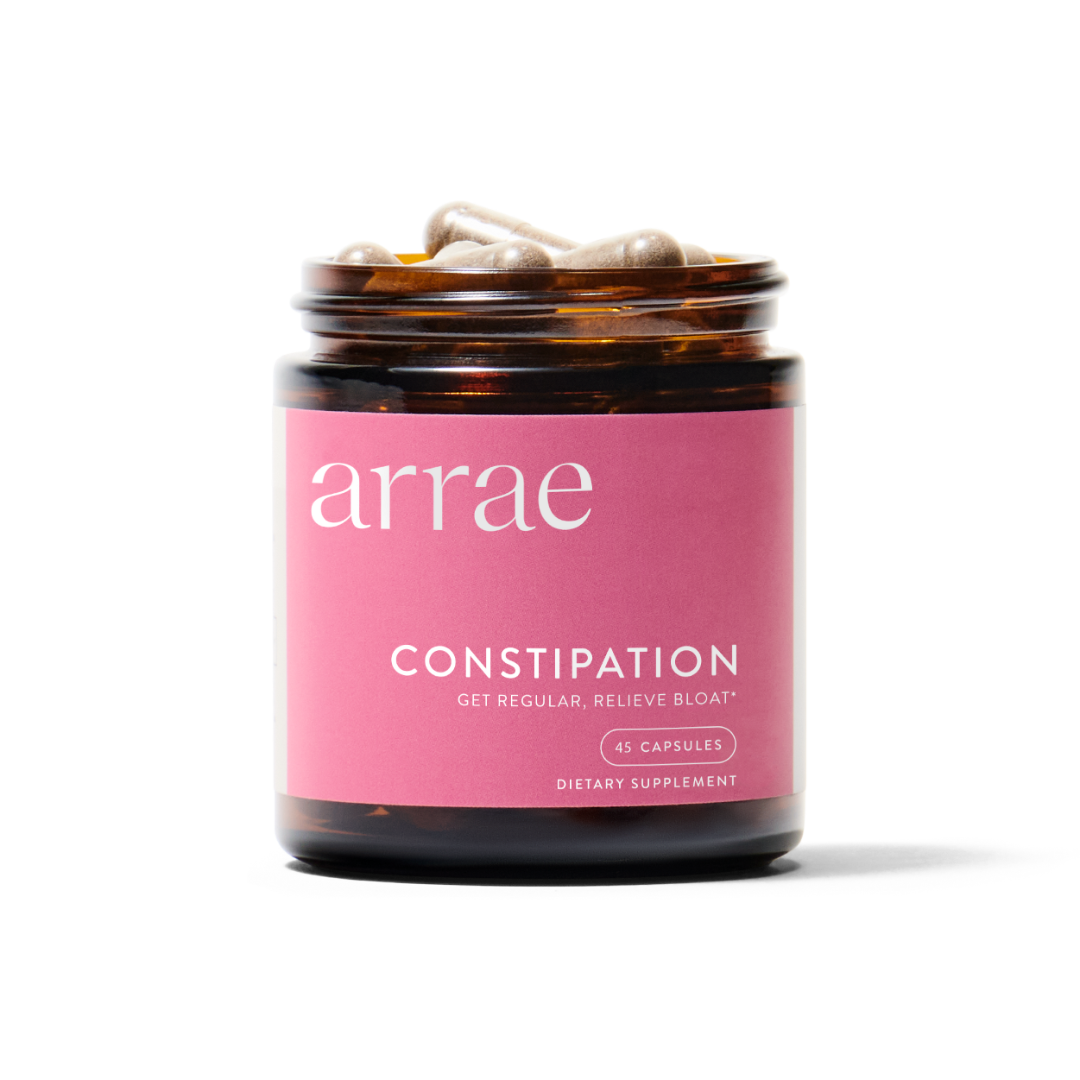By now, we know that there are many facets to wellness; the physical, mental, emotional, and spiritual pillars of our lives intertwine in ways that either help, or hurt, our wellbeing. Being a wellness “it girl” can look like: drinking enough water, eating a plentiful diet rich in whole, nutritious foods, moving our body on most days of the week, and practicing our self care routines. However, one major component often goes by the wayside. So major, in fact, that we would be unable to do any of the above without it! It's the one part of life that requires stillness, quiet, and darkness and provides our bodies with endless benefits. Any guesses?
It’s sleep!
When we don’t get adequate sleep–whether that be in time or in quality–we’re more likely to become ill, gain weight, and feel anxious and/or depressed. Our cognitive skills, including memory, concentration, and reasoning, are also likely to suffer as a result. A lack of sleep can also lead to an increased risk of chronic diseases, including obesity, type 2 diabetes, and cardiovascular disease. However, when we do get enough rest, the benefits to our physical and emotional health, our cognition, and even the ways in which we show up in our relationships and in our professional lives are powerful. We spend an estimated one-third of our day asleep, making it crucial to understand how to maximize its benefits in order to be the best version of ourselves.
With that in mind, let’s take a closer look at the connection between sleep and mood, the how and why to develop a sleep routine, and how to balance sleep on a daily basis, whether it’s a weekday or a weekend.
Sleep and Mood
Many of us are familiar with the irritability and moodiness that accompany a bad night’s sleep, whether we were tossing and turning or just got to sleep past our normal bedtime. However, once we’ve caught up on sleep, our mood often returns back to baseline. Sleep and mood are bidirectional, meaning that sleep affects mood, but mood also affects sleep. A lack of sleep can cause us to feel more than just fatigued the next day, while anxiety and agitation can make it harder to sleep, even when we’re exhausted. So, it’s not surprising that constant stress also makes it difficult to sleep, creating a vicious sleep/stress cycle. Waking up feeling unrefreshed and less able to deal with the day ahead increases stress and anxiety about sleep the next night, thereby making us feel even worse.
A University of Pennsylvania study found that subjects who were limited to only 4.5 hours of sleep a night for one week reported feeling more stressed, angry, sad, and mentally exhausted. When the subjects resumed normal sleep (defined as 8-9 hours per night), they reported a dramatic improvement in mood. This study shows that although sleep deprivation is serious, there are ways to resume a normal mood though catching up on Zs.
Sleep is a vital function of life, and it comes with various benefits. When we sleep, our brain is active, working to filter, sort, and process information, memories, and emotions. When we sleep enough, we give our brain adequate time to focus on our learning and memory, allowing ourselves to take in new information and remember our favorite memories. Waking up rested and refreshed is a signal that our brain is ready for the day ahead. Our brain relies on sleep to process emotions, so we know how to react in certain situations. When we don’t sleep enough, we cut short the time we need to recognize emotions; sleep deprivation leads to having more negative emotional reactions and fewer positive ones. Sleep lets us hit the reset button on a bad day, allow our brain to rest, and be better prepared to meet challenges and stressors the next day.
Sleep and Brain Activity
Even though, to us, our body is asleep (i.e., not moving voluntarily), both the brain and the body stay active during sleep. Researchers are still trying to learn more about sleep and its effects on health, but one thing is certain: sleep is a period of time during which the brain is engaged in a number of activities necessary to life. Specifically, sleep allows our brain and body to function in order to provide us with the best quality of life.
Brain activity fluctuates a lot during sleep, increasing and decreasing during the different sleep stages that make up the sleep cycle. Each stage plays a role in brain health, allowing different parts of the brain to ramp up or down, enabling better thinking, learning, and memory. Research has shown that brain activity during sleep has profound effects on emotional and mental health. Sufficient sleep, and particular REM sleep, allows the brain to better process emotional information. While we’re asleep, our brain is working hard to evaluate, remember, and sort thoughts and memories. On the other hand, a lack of sleep can be especially harmful to the collection and processing of this emotional content. As a result, when we’re sleep deprived, our mood and emotional reactivity suffer.
A healthy amount of sleep is vital for brain plasticity, or the brain’s ability to adapt to input. If we sleep too little, we become unable to process information that we’ve gathered during the day and we have more difficulty remembering it the next day. Our brains largely dictate our emotional wellbeing, too, so it’s expected that sleep, our brain, and mental health go hand in hand. Let’s take a look at two common mental health problems, anxiety and depression, to understand how we can use sleep’s roles to better ourselves.
Sleep and Anxiety
Anxiety disorders affect an estimated 20% of adults and teenagers in the United States. Anxiety can take up a lot of our brain space, from being preoccupied about school or work, worrying about family and friends, overthinking situations, and even worrying about our lack of sleep. Worry and fear, two common attributes of anxiety, contribute to a state of hyperarousal. This can feel like a racing mind, fast heartbeat, and overall paranoia or stress. Hyperarousal is known to be a contributing factor to insomnia, where an individual has difficulty falling asleep and staying asleep. Not sleeping enough can not only make us feel tired, but heightens our emotional response to situations during which we may have acted or responded differently had we gotten enough shut-eye. New research shows that poor sleep can even activate anxiety in people who are at high risk for it, further highlighting the importance of catching enough good quality Zs.
Sleep and Depression
It’s estimated that over 300 million people around the world have depression, a mood disorder marked by feelings of sadness or hopelessness. Additionally, around 75% of depressed people show symptoms of insomnia. Much like anxiety, sleep and depression are considered to affect each other. Research suggests that poor sleep exacerbates depression, showing that sleep problems and depressive symptoms are mutually reinforcing. This creates a negative feedback loop: poor sleep makes depression worse which then makes sleep worse. It’s theorized that a focus on improving sleep may have significant benefits of reducing the symptoms of depression.
How Do We Develop a Sleep Routine?
Now that we’ve covered the numerous benefits to getting enough sleep (and have highlighted the major negative effects of sleep deprivation), let’s outline the steps to creating a sustainable sleep schedule. Science shows that seven to nine hours of sleep is optimal, though sleep needs vary and we may need more or less than that depending on various factors). But, as many of us know, falling asleep and maintaining a routine is much more challenging than simply placing our head on the pillow and shutting our eyes. From racing thoughts about the next day, overthinking situations that happened that day, worrying about friends and family, and wanting to prioritize sleep, it can be a struggle to turn off our brain. Much like the other facets of our lives, creating a sleep routine and practicing good sleep hygiene are key to forming sleep-promoting habits and ensuring that we get enough shut-eye that night.
Go to bed and wake at the same time every day: Our bodies crave routine, and going to bed and waking up at different times every day can make us feel unregulated. Create a routine that works for you and your schedule, and before you know it, you’ll start naturally waking up without the blaring alarm clock. It’s important to do this on weekdays and weekends; our bodies can’t tell the difference! Sneak in a 20-30 minute nap ideally before 3PM if you feel like you need some more Zs on the weekend, without compromising your routine.
Get Morning Sunlight: A morning walk does our body so much good! Sunlight stimulates our release of cortisol, which wakes us up, and dampens our melatonin, which makes us sleepy. Try to get at least 10 minutes of sunlight every morning to optimize your Circadian rhythm.
Take 2-3 Sleep capsules: Made with five all natural herbs, Sleep, works to calm the nervous system, regulate cortisol, and reduce insomnia and anxiety. Sleep works to regulate your sleep cycle and promotes a deep REM sleep, both of which are needed to wake up feeling energized and ready for the day. Our formula is non-habit forming and melatonin-free, so you wake up rested, without any drowsiness. Take an hour before your head hits the pillow and drift off into a deep, restful sleep.
Exercise Regularly: Movement and sleep go hand-in-hand! Moving your body releases endorphins, or feel good hormones, that cultivate a sense of wellbeing and happiness. In addition, physically tiring out our bodies gives our brain help in the sleep department.
Create a Sleep Environment: The place in which we sleep should be dark, quiet, and cool. Noise, light, and heat can make it hard to fall asleep, and these disturbances prevent our bodies from getting adequate REM sleep. This also includes stopping the use of devices 30 minutes before sleep; try a paperback or a meditation instead!
Keep Caffeine to a Minimum: Yes, we know that a cup of coffee motivates us to get out of bed in the morning. Caffeine actually has lots of benefits, but has been found to significantly affect our sleep after noon. Try to incorporate caffeine into the morning, while opting for water later on in the day.
Sleep can make us happier and healthier, and it’s crucial for our body’s physical, mental, and emotional wellbeing. Sleep is extremely personal, and it may take more than one try to figure out what works best. However, we should all be prioritizing shut-eye and should aim to incorporate good sleep habits into our daily routines. Now, who’s ready for bed?!
Disclaimer: This blog post is purely informational and does not imply any evaluation by the Food and Drug Administration. This blog post is not intended to diagnose, treat, cure, or prevent diseases, nor should it substitute for advice from a healthcare professional.
Dinges, D. et al., Cumulative Sleepiness, Mood Disturbance, and Psychomotor Vigilance Decrements During a Week of Sleep Restricted to 4 – 5 Hours Per Night, Sleep. 1997 Apr; 20 (4): 267–277.
Goldstein, Andrea N et al. “Tired and apprehensive: anxiety amplifies the impact of sleep loss on aversive brain anticipation.” The Journal of neuroscience : the official journal of the Society for Neuroscience vol. 33,26 (2013): 10607-15. doi:10.1523/JNEUROSCI.5578-12.2013
“Sleep and Mood.” Sleep and Mood | Need Sleep, https://healthysleep.med.harvard.edu/need-sleep/whats-in-it-for-you/mood#1.






















 Instagram
Instagram TikTok
TikTok Youtube
Youtube Facebook
Facebook Email
Email